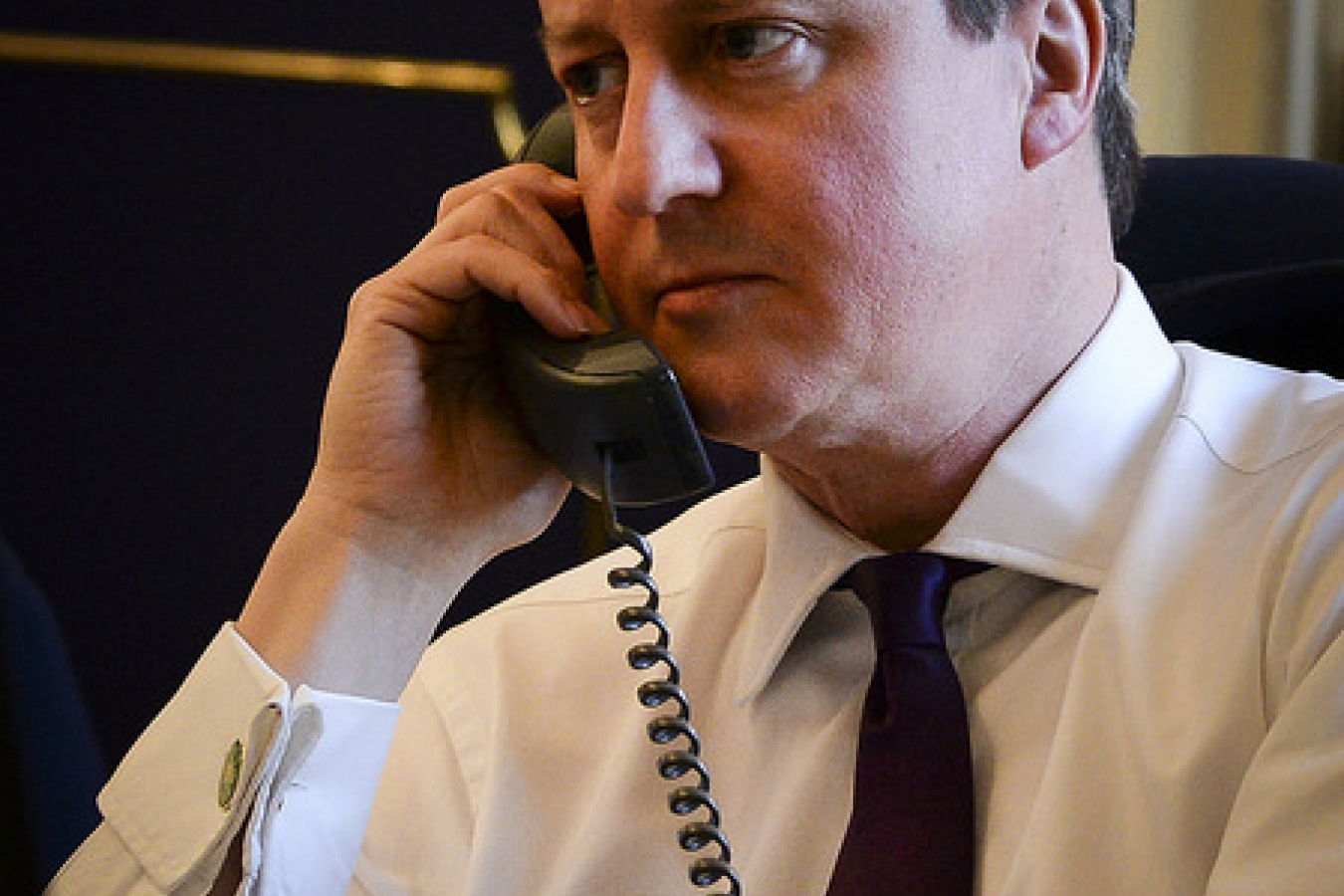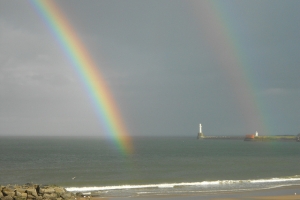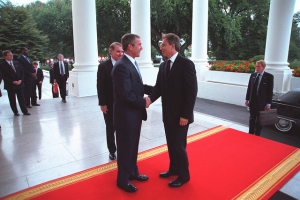Support migrant centric journalism today and donate

By Alex Owen
The UK government has got itself into trouble over immigration figures again. The UK press has been asking government ministers for an estimated figure of the number of Romanians and Bulgarians who will come to the UK on January 1st 2014. On that date, citizens from Romania and Bulgaria will be free to come to the UK to work. The two countries joined the EU in 2007. At that point, the UK, along with other EU states put up 'transitional controls' on the free movement of workers coming from those countries to the EU. This was to allow the economies of those countries to grow and reduce the gap in living standards between the new member states and the old EU. Under EU law, Those controls are allowed to last for seven years and so on 1st January 2014, all Romanians and Bulgarians will be entitled to come to the UK to work.
At first, when asked, government ministers said that they didn't have figures to give the press. In January, Communities Secretary Eric Pickles said that the government have figures but said he would not talk about them because 'I wasn't confident of those figures'. He made matters worse by saying 'Given that we've got a housing shortage, any influx from Romania and Bulgaria is going to cause problems - it's going to cause problems, not just in terms of the housing market but also on social housing markets.'
The UK's Prime Minister, David Cameron, backed up Mr Pickles in January saying that it would be wrong to reveal figures that were insufficiently robust. A journalist at the New Statesman magazine, George Eaton, submitted a Freedom of Information (FOI) Act request to the government asking that they should reveal the figure. The government has responded to the FOI request saying that it has an estimate for the number of immigrants it expects to come from the two countries but has also said that it wants more time to decide whether or not to reveal it. It will reply to Mr Eaton again on 13th March 2013.
Meanwhile, other ministers continue to explain why they won't give the figures they have. On 12th February, MPs asked the UK's immigration minister Mark Harper to reveal the government's estimate. Mr Harper replied "Speculative projections about future inflows cannot be made with any degree of accuracy and are therefore not particularly helpful".
'Don't think we should start bandying around estimates'
And then on 20th February 2013, Deputy Prime Minister Nick Clegg too refused to reveal the figure. He said 'We've seen estimates but they are estimates. I don't think it helps public confidence in the immigration system if we start…I don't think we as a government should start bandying around estimates which are, at the moment, not very precise.'Then on the Andrew Marr Show on BBC1 on Sunday 3rd March 2013, William Hague, the UK's Foreign Secretary, told interviewer Sophie Raworth that the government did not have any figures about the number of Romanians and Bulgarians who would come to the UK.
When Mr Cameron and Mr Clegg came to power in 2010, Mr Cameron wrote a letter to all MPs saying 'Greater transparency across government is at the heart of our shared commitment to enable the public to hold politicians and public bodies to account' and promising to head one of the most transparent governments ever.
And yet, on the subject of Romanian and Bulgarian immigration, his government refuses to reveal a figure that we know that it has. Why?
Previous estimates 'not good'
There are several reasons. The first is simply this; the previous UK government's record when it comes to immigration statistics is not good. The most notable example of this came in 2004. The then Labour government headed by Tony Blair was asked to give an estimate of how many immigrants would come to the UK from Eastern Europe when ten new countries joined the EU on May 31st 2004. The anti-immigration pressure organisation Migrationwatch UK predicted that 200,000 people would come to the UK each year. The UK government denounced Migrationwatch as alarmist.Poland, Slovakia, Slovenia, the Czech Republic, Estonia, Latvia, Lithuania, Hungary, Cyprus and Malta joined the EU on 1st May 2004. Most existing EU states put transitional controls in place. Germany, Italy, Spain and France all did so. Only the UK, Sweden and Ireland allowed free movement of the new Europeans. The UK government said controls were unnecessary because it expected only 5,000 to 13,000 migrants to come from the new EU countries each year.
No one knows quite how many people actually came from the new Europe after 1st May 2004 but it is thought that about 750,000 came in the first two years; about double the Migrationwatch estimate. Perhaps it is understandable therefore, if government ministers are now a little wary of making predictions.
However, by refusing to produce figures of its own, the UK government is not only breaking its promise on transparency, it has left the limelight to Migrationwatch UK again. This time, Migrationwatch claims that 50,000 people will come from Romania and Bulgaria every year until 2019; 250,000 in total. Why then, does the government not confirm the Migrationwatch figure or contradict it?
All options bad for UK government
The difficulty for the government is this; whatever its figure is, it is bad news.If the government believes that the Migrationwatch figure is right (or an underestimate) then this will cause difficulties with the UK press and with the anti-European UK Independence Party.Large sections of the UK press can be described as 'anti-immigration'. The mid-market tabloids The Daily Express and The Daily Mail and the tabloid Sun all run negative stories about immigration almost every day. To an extent, these papers are merely reflecting the views of their readership. A recent poll showed that some 79% of UK voters are opposed to any more EU immigration into the UK.
The government may also fear that, if 50,000 more immigrants each year come from the EU, it will increase anti-EU feeling. This in turn is likely to draw voters away from Mr Cameron's right-wing Conservative Party and towards the UK Independence Party (UKIP). UKIP is a party whose main goal is to see the UK leave the EU. It currently has about 15% support; This support seems to have been taken largely, though not exclusively, from Mr Cameron's Conservative Party. Some pollsters predict that even a moderate swing to UKIP from the Conservatives could cost Mr Cameron the next election. Naturally, he does not want to see this happen.
This problem has been illustrated and made worse by the recent by-election in Eastleigh, a suburb of Southampton on 28th February 2013. The by-election was caused by the resignation of Chris Huhne, a former Liberal Democrat government minister. At this election, Mr Cameron's Conservative Party came third, behind the Liberal Democrats and UKIP.
If, on the other hand, the government's estimate is lower than Migrationwatch's, the UK's Labour opposition will say that immigrants are spurning Britain because there are no jobs in Britain's 'flatlining economy'.
And whatever the figure is, the main problem for Mr Cameron is that there is nothing that he can do about it.
'Tens of thousands' promise beyond Cameron's control
This is doubly bad news for Mr Cameron because of a promise he made in 2010. In 2010, again on the BBC's Andrew Marr Show, Mr Cameron said that he intended to reduce net immigration from 260,000 a year as it then was to 'tens of thousands' every year.The trouble is that, because of the UK's membership of the EU, he cannot stop EU immigration. The most recent figures from the Office for National Statistics show that immigration from eastern Europe alone in 2012 was 62,000. The UK's membership of the EU means that it is signed up to the free movement of labour throughout the union. And it is an inevitable consequence of free movement of labour that some people will move from areas in the new Europe where wages are low to the old Europe where they are higher.
Indeed, the leader of UKIP, Nigel Farage, has now said that immigration is the most pressing reason for the UK to leave the EU, thus putting even further pressure on Mr Cameron. To make matters worse, a substantial number of Mr Cameron's Conservative MPs are sympathetic to Mr Farage's views on the EU. Mr Cameron is being pulled into a fight about immigration.
The polls say that the UK electorate is opposed to further immigration from the EU. Labour leader Ed Miliband gave a party political broadcast on 6th March 2013 saying that Labour is now opposed to it too. But, short of leaving the EU, which would be 'the nuclear option' there isn't much that anyone can do about it.
'British jobs for British workers'
As early as 2007, Labour Prime Minister Gordon Brown, who took over as the UK's Prime Minister from Tony Blair in that year, was calling for 'British jobs for British workers' because of a perception that many of the jobs being created in the UK were going to immigrants rather than to British workers. In 2009, Mr Cameron, by now leader of the Opposition, criticised Mr Brown for using the phrase saying 'Use of the slogan 'British jobs for British workers' showed a lack of judgment'. Now, Mr Cameron is Prime Minister, he is trying to imply a similar thing himself.In 2011, by which time Mr Cameron had been Prime Minister for a year, his Work and Pensions Secretary Ian Duncan Smith made a speech saying that he wanted the immigration system to be used to ensure that British unemployed people were given jobs before immigrants. Mr Duncan Smith was responding to reports that, in 2011, 90% of the 400,000 jobs created in the UK were taken by non-British workers, most of them unskilled workers from poorer EU countries.
So Mr Cameron is caught in a double bind. He cannot limit unskilled migration from within the EU but, if he does not, UKIP will continue to snap at his heels.
And things are no easier for the Labour Party. Ed Miliband is attempting to disown his own party's record on immigration. Over 2m people settled in the UK during the last Labour regime between 1997 and 2010. Labour polling has clearly showed that the electorate have yet to forgive the Labour Party for this.
Migrationwatch figure 'little more than a guess'
No one knows how many people will come from Romania and Bulgaria to live in the UK. Migrationwatch says it will be 250,000 in five years. This is, of course, little more than a guess.Migrationwatch chairman Sir Andrew Green says that Romanians and Bulgarians would be '8 or 9 times better off' if they came to the UK. He told The Daily Mail that a single person in Romania on the minimum wage would earn about £55 per week. In the UK, he would earn £254 on the minimum wage. He said that UK childcare benefit for two children is equivalent to a week's take-home pay in Bulgaria. He says that he expects Bulgarians and Romanians to come to the UK and to claim that benefit, even if the children remain at home in Bulgaria and Romania. UK unemployment benefit is equivalent to twice the minimum wage in both countries. Of course, these comparisons take no account of the fact that the cost of living in the UK is about three times higher than in the Romanian capital Bucharest.
The Romanian ambassador, Dr Ion Jinga, has said that he doubts many more Romanians will come to the UK. He says that Romanians will tend to travel to France, Italy and Spain where the similarities between the languages with Romanian give them an advantage. The Bulgarian foreign Minister Nikolay Mladenov said that he thought most Bulgarians would prefer to travel to Germany, Italy and France, with which Bulgaria has closer business ties than with the UK.
On the other hand, Dr Jinga also told UK newspaper The Daily Telegraph that many Romanians were already in London and had played a major role in building the Olympic Park for the 2012 Olympics. This is true, 9,000 Romanians were registered as builders on the project.
Time will tell. But for now this is a problem for all British politicians. It is unlikely, in the end, that the UK will leave the EU over this issue but much more likely that Mr Cameron will find that continuing wrangles over the EU and immigration will cost him his job.
Workpermit.com is a specialist visa consultancy with nearly twenty-five years of experience dealing with visa applications. We are OISC registered. We can help with a wide range of visa applications to the UK or your country of choice. Please feel free to contact us for further details.





















